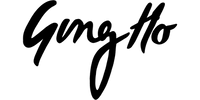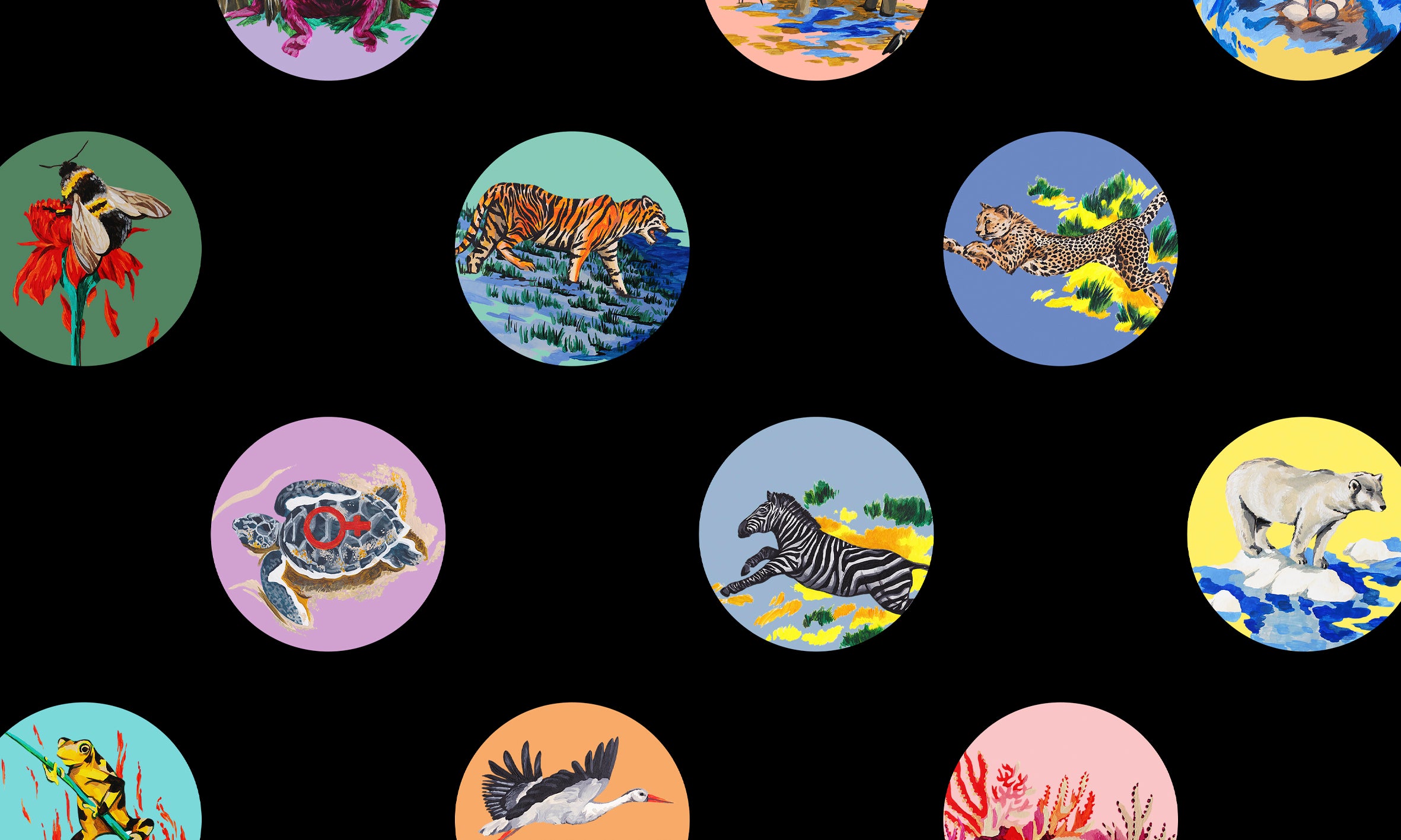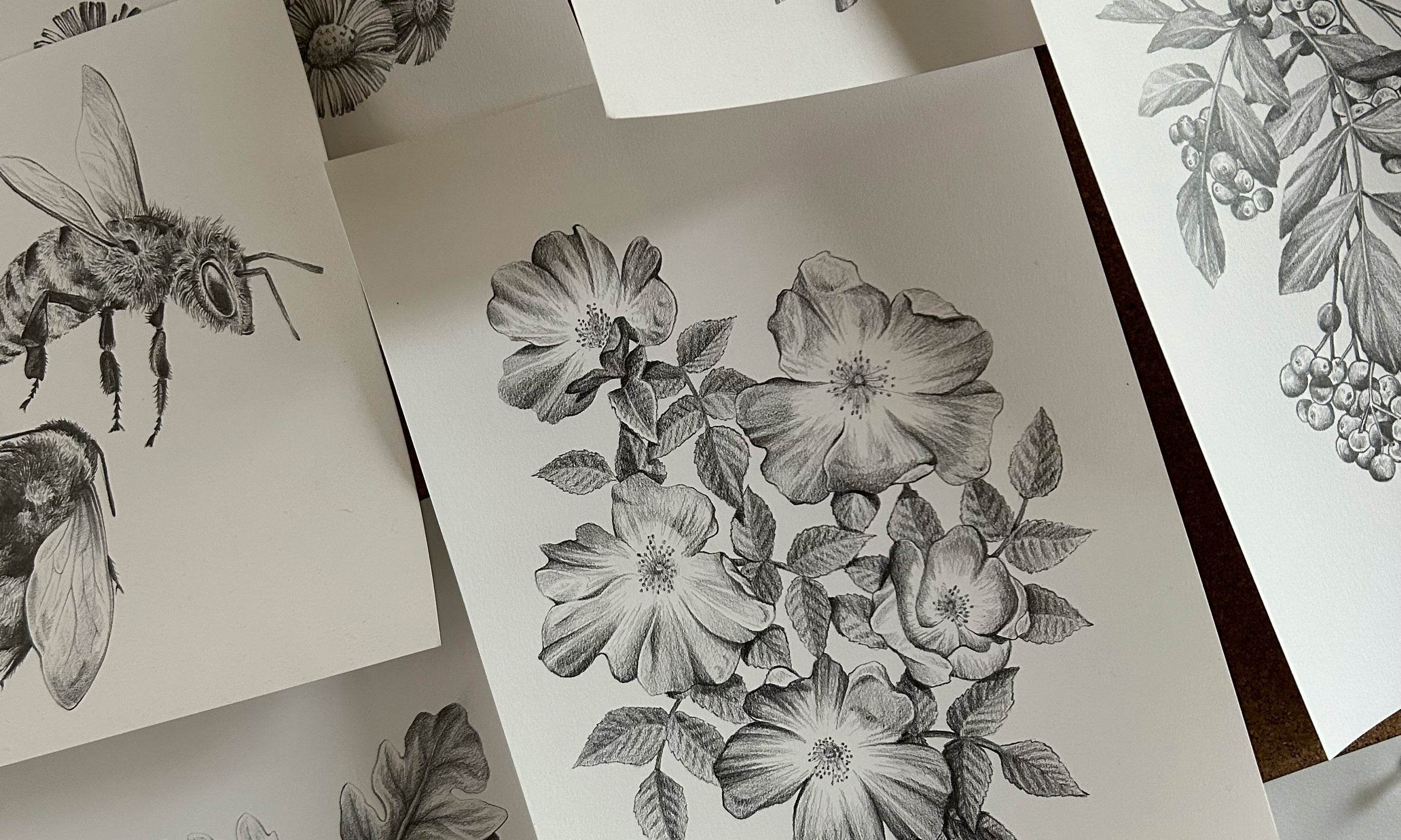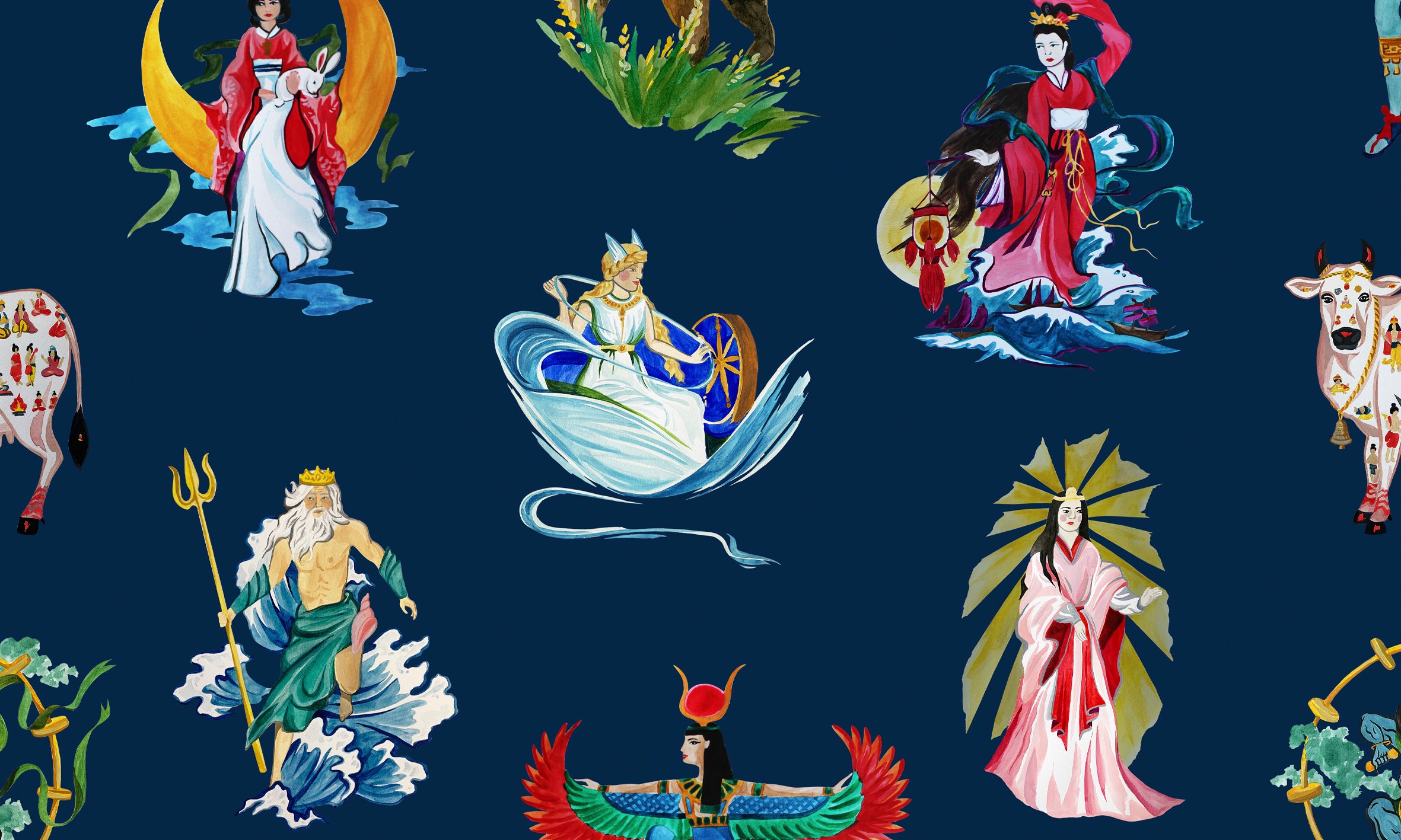Stories of Displacement
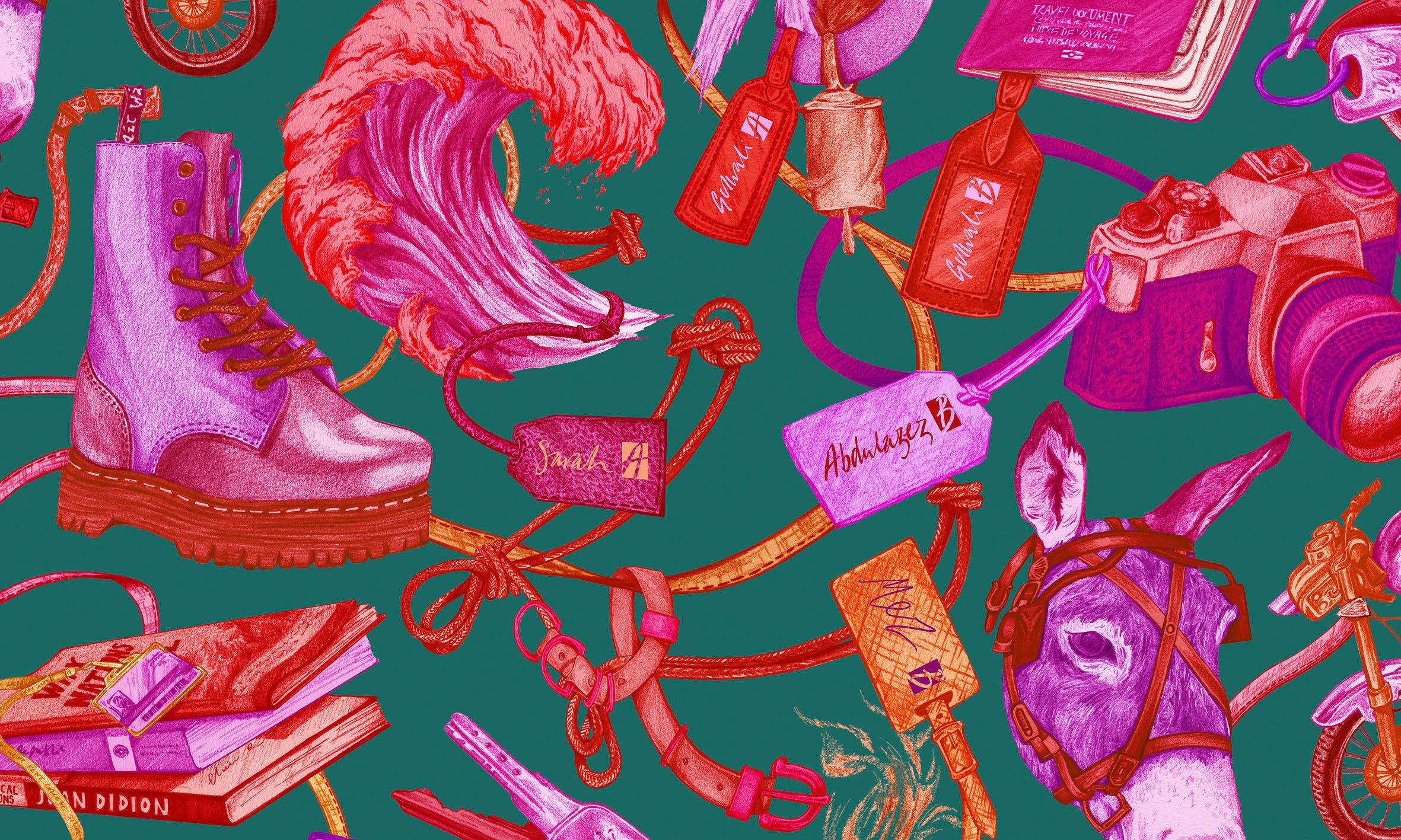
According to UNHCR, The UN Refugee Agency, there are now over 80 million people forcibly displaced, of which 26 million are refugees. These huge numbers are overwhelming and, to be able to process them, a lot of the time we tend to think of them only in terms of statistics, rather than people.
This print weaves together individual stories, highlighting the people behind the statistics with lived experience of displacement. Each individual chose two objects; something that represents their previous home (object A), and something that represents their life now (object B). A firm favourite in the Gung Ho classic illustration style - empower yourself with truly inspiring journeys, each completely individual and unique.
Each person in these scary statistics is someone just like you or me who has had to undergo serious trauma to leave their lives behind and try to find somewhere safe. These stories are incredibly moving, and by wearing this print you are channelling not only their journeys, but more importantly their incredible attitudes to life. Learn with us and embrace new people and experiences in order to create the change needed for a better future for all. Let’s be part of the change, not avoid it.
SARAH
The first story told in this design is from the truly inspiring Sarah.
Sarah's objects are centred around (A) a wave that represents her affinity with water and her swimming. On her journey Sarah and her sister, Yusra, jumped into the waves and swam for three and a half hours in open water to stop their dinghy capsizing, saving the lives of 20 people.
Sarah's object (B) is her Doc Martin boot, Sarah is passionate about fashion and wants to follow her dreams as a designer - and is never not wearing her signature boot. This boot represents a lot for Sarah, moving out of campaigning for her rights to follow her actual dreams and what inspires her.
Sarah is facing serious legal disputes by the Greek authorities over false allegations of being a people smuggler and a spy when she was volunteering to help refugees in Lesbos, Greece. Her story is a fascinating one that highlights how corrupt the system really is. Listen to Sarah’s podcast episode and to hear her story in more detail.
MEZ
Mez chose two things that remind him of his two homes - (A) a donkey from when his job was driving a Karosa (a donkey-led cart) back home in Eritrea, followed by (B) a cup of tea which represents his life in the UK now he has learnt to chill out and take a moment, something he didn't have in his former home. This cup of tea is something that really resonated, as no matter how long or difficult a day has been, being able to go home, take a moment and have a cup of tea really helps. It is difficult to take a cup of tea for granted now.
Mez is also the foster brother of Jaz, the founder of The Worldwide Tribe, and his two episodes on the podcast really are incredible to listen to.
Listen to Mez’s two podcasts below and really delve into his journey.
From them, you can learn about a lot of his reasons for having to leave Eritrea, the conditions of being smuggled, his experience in hiding, and making the dangerous crossing over the channel to the UK.
Listen to Mez’s podcast one here, and two here.
BEGO
Bego is another member of the multicultural and ever empowering O’Hara family.
Although Bego doesn’t have a podcast episode, it was truly inspiring to learn his story and talk in depth to someone who has been through so much and yet has such a calm outlook on life.
Bego’s objects are (A) a motorbike, which he used to ride from age 13 and was really part of his identity back in Sudan where life was a lot more dangerous.
Bego’s second object (B) are some reading books recommended for those taking politics at university, paired with his college lanyard. His aim is to study to help change policies, and in turn others that have had to make similar journeys.
ABDULAZEZ
Abdulazez’s first object, (A) is his house keys. Fleeing Syria and conflict, Abdulazez kept the keys to his home in his pocket for years. Despite not only having to leave his friends behind, being treated badly and suffering from poor living conditions where he and his family had nothing, Abdulazez started creating artwork.
This brings us to his second object (B), his camera. From starting to learn photography from his small tent in Eko Station camp in Greece, Abdulazez started to take photos inside the camps. Drawn to making art about life, love, hope, but always thinking about Syria, Abdulazez started creating artwork that represented his people. Some volunteers gave him a camera and that was the start of his passion.
Listen to Abdulazez’s podcast here.
GULWALI
Last but not least is Gulwali’s story.
Gulwali’s first object (A) is a goat with a bell around its neck, a memory of peaceful times when he used to visit his grandparents who lived in the mountains. Gulwali was forced to flee his affluent Pashtun home in Afghanistan when he was only 12 after it became a war zone following the US invasion in 2001. After losing family and being unsuccessfully recruited by the Taliban his mother sent him and his brother to flee the country.
His second object (B) is his United Kingdom of Great Britain and Ireland Travel Document which allows him to share his experiences through public speaking, his book, and being an advocate and ambassador for a range of social justice issues and causes. In the last four years alone he has delivered over 300 talks at literary festivals, conferences, schools and universities.
Recognising that he is one of many people who have faced a perilous journey in their search for safety, Gulwali draws on his own experiences to fervently advocate for the rights of newly arrived people in the UK. Since arriving in the UK, Gulwali has won 11 awards, completed a Masters degree, set up a charity, and written a book that is now published in six languages. It is indisputable that Gulwali has achieved beyond all odds to inform, inspire and empower others to improve the rights of people fleeing war, persecution or natural disaster.
Listen to his podcast episode here.
Buy Gulwali’s book here.
By purchasing this print you are also supporting charity organisations that advocate more inclusive legislation - thank you!
The actions we take day to day will have a huge impact on other people’s lives, especially with so much displacement by climate change. It is our responsibility to take ownership of our impact and strive to not only create less mess, but a positive future - for those all around the world.
We must demand social change and a new way of thinking. Let’s be inclusive, not exclusive.
Talk about it. Word of mouth is powerful and the more these subjects are spoken about, the higher up on the agenda they will become.
